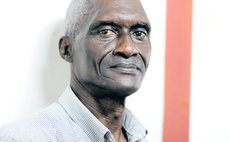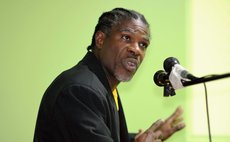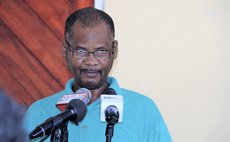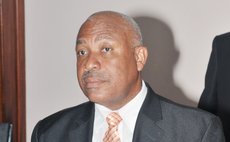Ebola: The Politicization of an Epidemic
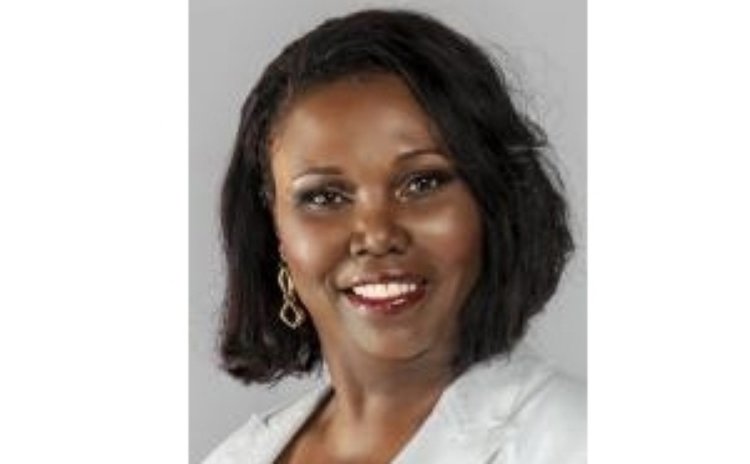
By Rebecca Theodore
"Illness is a universal human experience almost certain as death, taxes and romantic disappointments." Yet, the new level of fear and false bluster that is leavened into the Ebola epidemic in western discourse now surpasses the constrains of language and reasoning.
As the dominant discourses fail to understand the ecological and socio-economic realities in which the epidemic continues to threaten economic stability in West Africa, all bonds of social cohesiveness and historically embedded cultural ties are rendered dissolute, thus yielding a 'pseudo truth' that is now conceptualized in points of politics and authority among western nations and in West Africa alike.
In this light, U.S. militarization plan to combat the disease, which according to World Health Organization has infected 7,178 and killed 3,338, should be commended. In fact "major deployment" in Liberia, 17 new treatment centers, training thousands of healthcare workers and establishing a "military control center for coordination" couldn't come at a better moment.
Even so, critics ask-"Why did they wait so long?"
In point of fact, "there has been a lack of planning on the Center for Disease Control (CDC's) part to head off the spread of Ebola," declares Missouri physician Dr. Gil Mobley, but the call from Sen. Ted Cruz, R-Texas, and Louisiana Gov. Bobby Jindal for the government to ban all air travel between Ebola-infected countries in West Africa and the United States, along with Sen. Rand Paul, R-Ky, cynical comment about what happens when the soldiers get back on a ship simply ask another conflicting question-
Was this intended to rouse a satirical rage?
However, while arguments persist that "giving politicians a platform to politicize a global health emergency in the interest of a few policy isn't just irresponsible but also downright malicious," the true witness in which the Ebola epidemic is now seen as a political phenomena and a form of practical realism i.e. of moral command and correct political action in world politics lie in the assertion of UN Children's Fund's (UNICEF's) sub-regional coordinator for the Ebola outbreak that "the reason that Ebola started in Guinea and has since spread to Liberia and other countries is that no one was paying attention."
Consequently, this attention is now centered on the activities of the International Monetary Fund, the World Bank, and pharmaceutical companies in the United States which are now using the epidemic as a trade fair to sell their medicinal products.
Despite the fact that the executive board of the International Monetary Fund in conjunction with the World Bank has recently pledged $130 million expansion of zero-interest loans to help the governments of Guinea, Sierra Leone and Liberia to cover an estimated $300 million financing gap as the crisis overwhelms their budgets; it also becomes easy to see the financially oppressive factor of these structural institutions to these countries as they were previously isolated from the IMF and World bank development programs because of their continuing problems.
Indeed, "that which has caused much want and illness and thrives upon it is that which now seeks to eliminate want and illness."
In this regard, it is good for IMF Chief Christine Lagarde to boast of this feat, but critics still speculate that $130 million is only about 40% of the total amount needed to fight the epidemic.
Moreover, with Africa's declining food capita of 25% and with an increasing risk of desertification and an explosion of human population it means that other African nations will also become concentrated areas of the Ebola epidemic because food scarcity leads to chronic undernourishment in which the picture of Ebola will largely appear.
The International Crisis Group (ICG) further warns that "the international community needs to provide more personnel and resources "not only to the immediate medical response, but also to the longer-term problems of strengthening governance and rebuilding health-care systems as past civil conflicts fuelled by local and regional antagonisms could resurface."
If "there is no single factor in the world that so systematically undermines the gains of decades of investment in human resources, education and health or the well being of nations as the Ebola epidemic" chimes in as truth, then the way in which the IMF, the World Bank and western politicians are politically labeling the Ebola epidemic are giving pharmaceutical companies the right to bargain prices for the treatment of the epidemic. It also leaves many to speculate that the epidemic is a disease of capitalistic glory in which the stakes are very and reliance on western medicine is used as a means to further weaken an indigenous culture and to provoke Darwinian adaptation into moral reasoning.
Aside from the fact that "the epidemic has exposed a disconnect between the aspirations of global health officials and the reality of infectious disease control," Ebola should now be understood as a deep social and philosophical problem in that it is a family tragedy where real development should not be perceived on the political realities laid down by the International Monetary Fund, the World Bank and pharmaceutical companies in the United States but centered on the needs of communities in West Africa.
Unless this is understood, then this new epidemic will recede in time not only to the bubonic plague of the fourteenth century but also to the complete extinction of all humanity.

